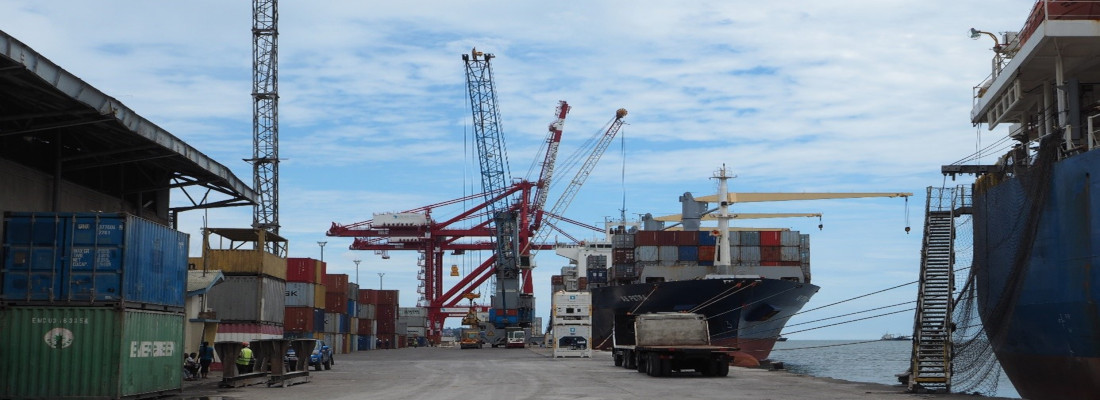Logistics and Logistification of African Economies
Team: Julian Stenmanns, Stefan Ouma
Runtime/Funding: laufend
What role do logistics and transport infrastructures play in Africa's current political economy and what political levers are they currently setting in motion on the continent?
For many years, the African continent was considered the problem child of the logistics industry. Too large and too fragmented in terms of area, with impenetrable internal borders and marked by social and political crises, Africa was a niche market for the industry. There is now a real hype about logistics projects on the continent. »African logistics«, according to the industry consulting firms, stand for the opportunity to develop the markets of tomorrow. Because the integration of African economies into global commodity chains requires above all a logistical process, i.e. an infrastructural, accounting and organizational restructuring of the same.
Based on ethnographic case studies in selected seaports and connected transport infrastructures, we examine logistics not only as a technological "fix" but also as a genuine geostrategic project. The focus of this project is infrastructure such as transport corridors and ports, which connect industrial parks, mines and farms with the help of management techniques from the pool of business supply chain management and the catalog of new digital geographic information systems. In this way, coherent spaces are created beyond classic nation-statehood.
As part of this logistic process in African economies, companies invest large sums in the expected network effects of monopolistic transport infrastructures and their control and monitoring. They aim for the greatest possible control over globally branched supply chains and the associated geographically unequal appropriation of value. On the other hand, they strategically rely on global diversity - a euphemism that in this area is above all the ever-widening gap between rich and poor, globally differently regulated tax systems, environmental standards, the juridification of work and the organization of dependent employees, but also gender and class relations and racism.
This logistical moment of African economies is expressed geographically above all in highly secured spatial enclaves and corridors, which mostly function extractively. In this context, logistics means much more than just the efficient control and planning of goods and information flows. Our approach discusses logistics and its supply chains as political technologies of connecting disparate geographies. They connect and synchronize a heterogeneous, fragmented world along and within the uneven terrain of capitalism.
Selected publications:
- Julian Stenmanns: Die räumliche Logik der Infrastruktur zwischen Afrika und Europa. In: ARCH+, 239 (2020). - S. 184-191.
- Julian Stenmanns: Logistics from the margins. In: Environment and Planning D : Society and Space, 37 (2019). - S. 850-867. doi:10.1177/0263775819834013
- Julian Stenmanns, Marc Boeckler: Supply chain capitalism and the technologies of global territory. In: Matthias Middell (Hrsg.): The Routledge handbook of transregional studies. - Milton : Routledge, 2018. - S. 259-266.
- Julian Stenmanns, Stefan Ouma: The new zones of circulation : On the production and securitisation of maritime frontiers in West Africa. In: Thomas Birtchnell, Satya Savitzky, John Urry (Hrsg.): Cargomobilities : moving materials in a global age. - New York : Routledge, 2015. - S. 87-105.
- Andreas Folkers, Julian Stenmanns: Logistical resistance against operations of capital : Security and protest in supply chains and finance. In: Geoforum, 100 (2019). - S. 199-208. doi:10.1016/j.geoforum.2019.01.011
- Stefan Ouma, Julian Stenmanns, Julia Verne: African Economies : Simply Connect? ; Problematizing the Discourse on Connectivity in Logistics and Communication. In: Mark Graham (Hrsg.): Digital Economies at Global Margins. - London : MIT Press, 2019. - S. 341-

